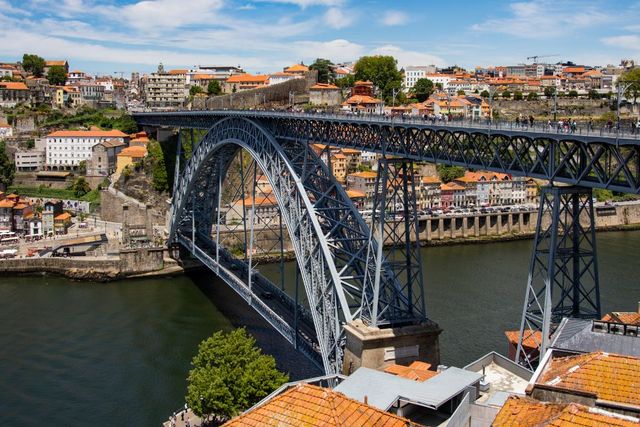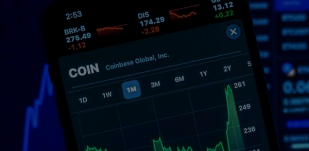How to Do Business in Portugal
Having weathered the 2008 global financial crisis and the Covid-19 pandemic, the Portuguese economy continues to display signs of progress: the nation's real GDP is projected to grow by 5.4% in 2022 and 1.7% in 2023.
Once reliant on its agricultural industry, Portugal has since transitioned to a service-based economy in line with its European Union (EU) neighbours. Tourism has been the driving force behind this shift, with almost 23 million visitors a year flocking to Portugal’s beaches, golf courses, and iconic cities.

Whether you’re planning to leverage Portugal’s geo-strategic position to create a gateway to global markets or you have your eye on its domestic potential, you’ll need to know how to do business there. This guide will provide you with some useful tips on doing business in Portugal.
Business Culture in Portugal
Business people from overseas are generally warmly welcomed amid a recognition that foreign investment forms an integral part of the modern Portuguese economy.
Portuguese business culture focuses on building relationships, so be patient and allow them to develop. Traditionally, this process has been shaped by a hierarchical top-down approach to management and leadership, with age and seniority valued highly. People prefer to work with someone they know well, respect and trust, meaning face-to-face meetings are preferable over conference calls and emails. However, as businesses evolve and formal practices give way to a more contemporary mindset, the process of building professional relationships is slowly becoming less rigid.
Benefits of Doing Business in Portugal
From tax incentives to its privileged geo-strategic position, UK businesses that choose to operate within Portugal’s borders open the door to a wealth of benefits.
Gateway to new markets
Portugal lies on the Iberian Peninsula in southwestern Europe, making it directly accessible to global shipping services via the Atlantic Ocean on its western and southern borders - with around 40 seaports and riverports handling millions of tonnes of goods a year.
Bordered by Spain to the north and east, the nation’s developed and far-reaching road and rail network provides full access to other European economies.
Strong international business relationships
Portugal has strong cultural, economic and historical ties with Latin America, Asia and Africa - notably Brazil, Angola, Mozambique, Cape Verde, São Tomé and Príncipe, Guinea-Bissau, East Timor and China - making it the perfect bridge to these economic areas.
Portuguese is the 7th most spoken language in the world - with almost 219 million speakers - making it easy to communicate with nations from every continent.
As a member of the EU since 1986, Portugal benefits from European rules on the free movement of goods, capital, services and labour.
Foreign investment incentives
There is a general openness towards foreign investors and employees. Generous EU-backed investment packages entice overseas businesses, such as the Non-Habitual Residents (NHR) programme and the Residence Authorisation for Conducting an Investment Activity (commonly known as the Golden Visa).
There are also incentives for large investment projects and proposals impacting positively on tourism, science and the environment.
Ease of trading across borders
According to the last Ease of Doing Business Report by the World Bank Group in 2020, Portugal scored top marks (100) for trading across borders - ranking it the number one country in the world for this indicator. This records the time and cost associated with the logistical process of exporting and importing goods.
The euro
Portugal is one of 19 EU member states for which the euro is its official currency. The single currency offers many benefits for businesses that use it. These include:
- Prices can be easily compared between countries
- Price stability within the eurozone
- Easier, cheaper and safer for businesses to buy and sell within the eurozone and to trade with the rest of the world
- Improved economic stability and growth
- Better integrated, promoting more efficient financial markets
- Greater influence in the global economy
A currency specialist like Clear Currency can help your business to harness the power of the euro to drive growth.
Challenges of Doing Business in Portugal
UK business owners will be exposed to legal, geopolitical, and financial challenges when entering Portuguese markets.
Brexit
The UK is no longer part of the EU Single Market, Customs Union, or VAT Territory. Since 1st January 2021, the new Trade and Cooperation Agreement (TCA) between the UK and EU has governed trade between both parties.
All EU member states - including Portugal - imposed full border controls from day one. Practically speaking, this means if you import or export to Portugal there are new VAT procedures and new customs processes to consider.
Trade with Portugal post-Brexit also means following new customs procedures. This involves making customs declarations, knowing how to classify goods correctly, and understanding relevant safety and security requirements. Due to the complexity of this requirement, the government recommends using a professional customs intermediary.
These Brexit implications have the potential to drive up your operating costs when doing business in Portugal. Amid this challenging trade environment, you must establish a currency strategy to prevent market fluctuations from impacting your bottom line.
Complex commercial litigation law
In Portugal, commercial contracts are used to establish commercial ties and to organise business in terms of production, distribution, and arbitrage of goods and services in the market. Commercial contracts are, therefore, recognised as a key instrument for business.
Under Portuguese law, commercial contracts have their own category and are distinct from civil contracts, such as the standard sale and purchase contract for a house. Portuguese law regulates commercial contracts using the Commercial Code and other specific laws. The number of laws providing legal structures for specific contracts has grown significantly.
Protecting minority investors
In the last Ease of Doing Business Report by the World Bank Group in 2020, Portugal ranked just 61 in the world for “protecting minority investors”. According to the report, this “measures the strength of minority shareholder protections against misuse of corporate assets by directors for their personal gain as well as shareholder rights, governance safeguards and corporate transparency requirements that reduce the risk of abuse.”
Getting credit
In the last Ease of Doing Business Report by the World Bank Group in 2020, Portugal ranked a lowly 119 in the world for “getting credit”. According to the report, this “explores two sets of issues: the strength of credit reporting systems and the effectiveness of collateral and bankruptcy laws in facilitating lending.”
Plan Ahead
Ambitious UK businesses that expand into Portugal can reap the rewards, provided they plan thoroughly before making a footprint in the EU’s 15th largest economy. If you decide to join them, you can easily overcome the inherent challenges by seeking help from a team of experts: legal, customs, financial, and currency.
Make International Payments with Clear Currency
As a currency specialist with a wealth of market knowledge and experience, Clear Currency can help you to shield your international payments to and from Portugal from fluctuating exchange rates. When you join us, we will assign you a dedicated account manager who can make you aware of tools to help protect your business from currency risk.
Open a free Clear Currency account today and start making quick, secure and cost-effective international payments.
Related Articles
How to Mitigate Foreign Exchange Risk
Currency risk can have a significant effect on the efficiency and profitability of any international business. Each exchange rate movement affects how much you receive from sales and what you pay to suppliers.
Read more
Moving to Dubai from the UK: Checklist
You’re ready for a new life overseas and have decided you’re moving to Dubai. Now it’s time to consider the various costs involved, from your visa and accommodation, to health insurance, shipping your belongings and bringing your beloved pets along too.
Read more
Currency Outlook Quarter 1 2023
Clear Currency looks back at the performance of the US dollar, euro and sterling in Q4 2022, and assesses what might be in store for Q1 2023.
Read more


